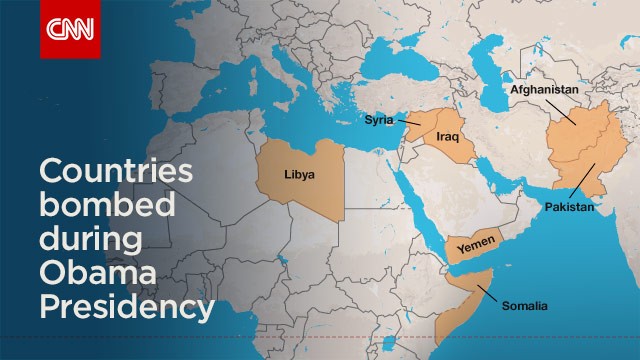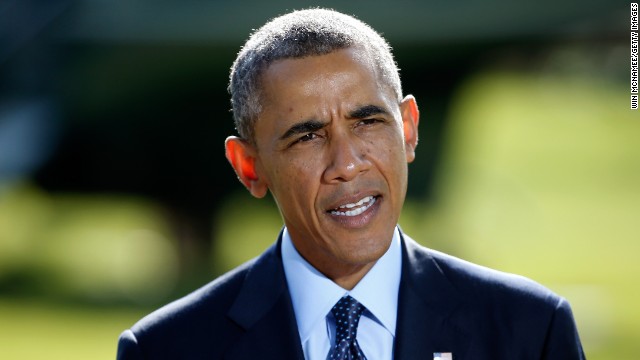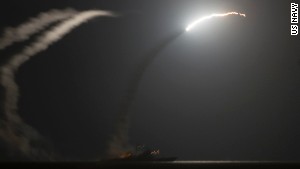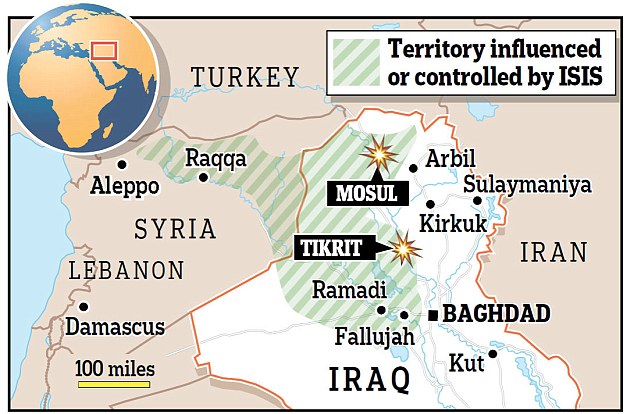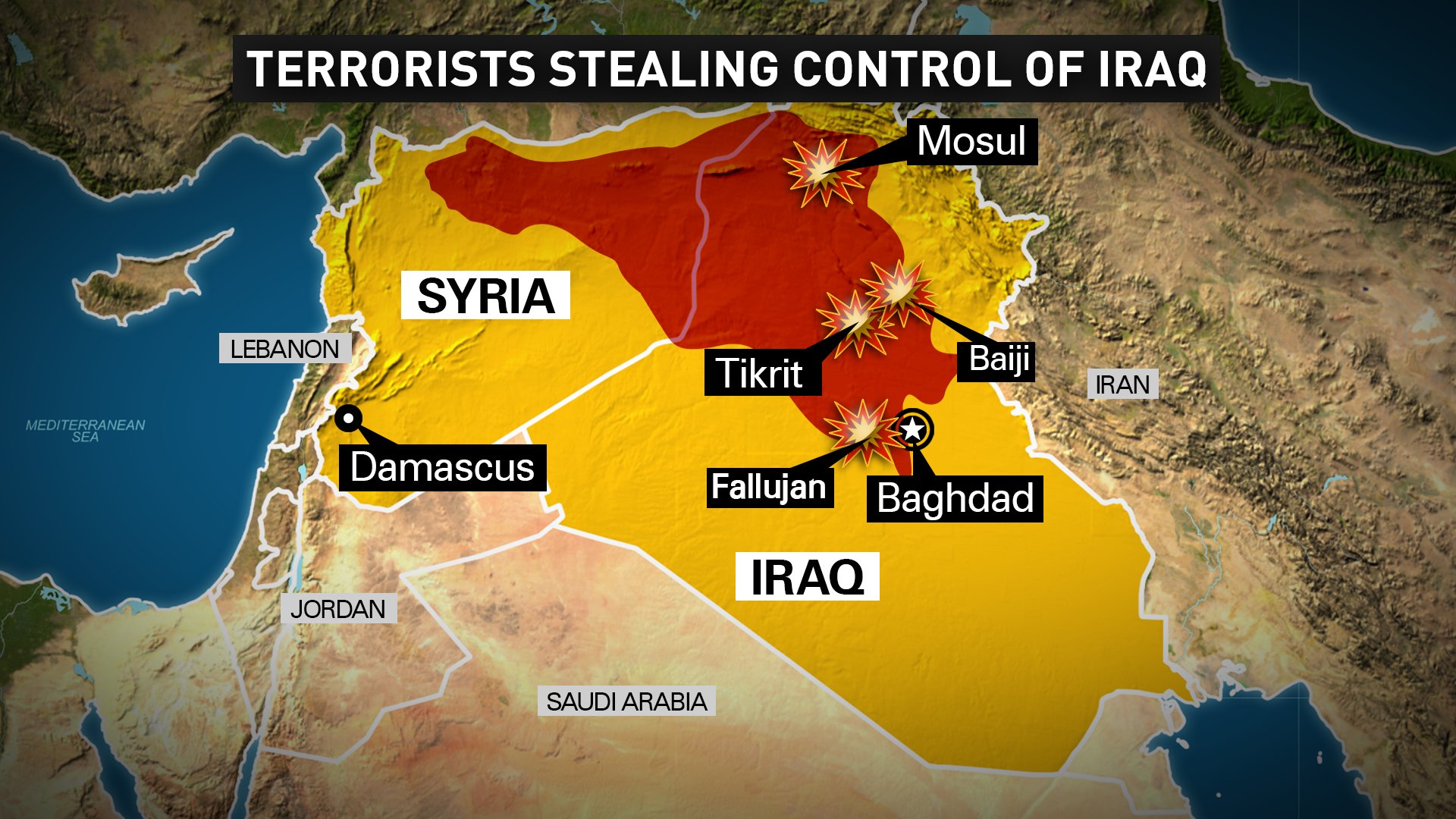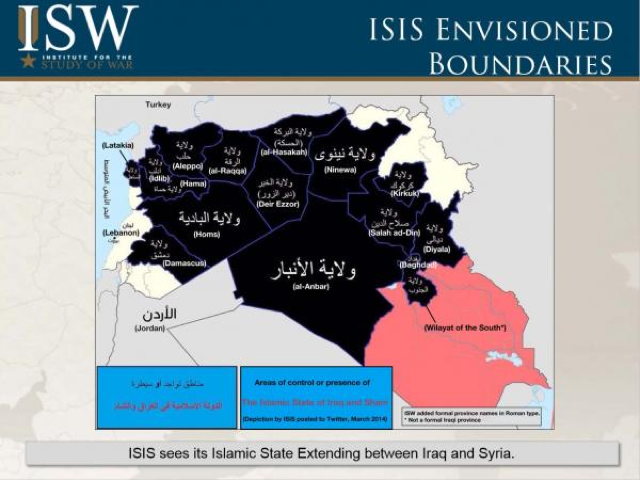Dave you're right on some aspects of your post. It was IDIOTIC to bring up Ferguson.
But then he skewered Putin.
And then this. This is the STRONG part. And no, I don't agree with everything in it, but overall it reflects his realization that we are in the fight. The president's number one job is to protect us from attack, and I believe he now recognizes that. I don't want our congress to play politics with it. Nor do I myself want to play politics with it.
===============
Of course, terrorism is not new. Speaking before this Assembly, President Kennedy put it well: “Terror is not a new weapon,” he said. “Throughout history it has been used by those who could not prevail, either by persuasion or example.” In the 20th century, terror was used by all manner of groups who failed to come to power through public support. But in this century, we have faced a more lethal and ideological brand of terrorists who have perverted one of the world’s great religions. With access to technology that allows small groups to do great harm, they have embraced a nightmarish vision that would divide the world into adherents and infidels – killing as many innocent civilians as possible; and employing the most brutal methods to intimidate people within their communities.
I have made it clear that America will not base our entire foreign policy on reacting to terrorism. Rather, we have waged a focused campaign against al Qaeda and its associated forces – taking out their leaders, and denying them the safe-havens they rely upon. At the same time, we have reaffirmed that the United States is not and never will be at war with Islam. Islam teaches peace. Muslims the world over aspire to live with dignity and a sense of justice. And when it comes to America and Islam, there is no us and them – there is only us, because millions of Muslim Americans are part of the fabric of our country.
So we reject any suggestion of a clash of civilizations. Belief in permanent religious war is the misguided refuge of extremists who cannot build or create anything, and therefore peddle only fanaticism and hate. And it is no exaggeration to say that humanity’s future depends on us uniting against those who would divide us along fault lines of tribe or sect; race or religion.
This is not simply a matter of words. Collectively, we must take concrete steps to address the danger posed by religiously motivated fanatics, and the trends that fuel their recruitment. Moreover, this campaign against extremism goes beyond a narrow security challenge. For while we have methodically degraded core al Qaeda and supported a transition to a sovereign Afghan government, extremist ideology has shifted to other places – particularly in the Middle East and North Africa, where a quarter of young people have no job; food and water could grow scarce; corruption is rampant; and sectarian conflicts have become increasingly hard to contain.
As an international community, we must meet this challenge with a focus on four areas. First, the terrorist group known as ISIL must be degraded, and ultimately destroyed.
This group has terrorized all who they come across in Iraq and Syria. Mothers, sisters and daughters have been subjected to rape as a weapon of war. Innocent children have been gunned down. Bodies have been dumped in mass graves. Religious minorities have been starved to death. In the most horrific crimes imaginable, innocent human beings have been beheaded, with videos of the atrocity distributed to shock the conscience of the world.
No God condones this terror. No grievance justifies these actions. There can be no reasoning – no negotiation – with this brand of evil. The only language understood by killers like this is the language of force. So the United States of America will work with a broad coalition to dismantle this network of death.
In this effort, we do not act alone. Nor do we intend to send U.S. troops to occupy foreign lands. Instead, we will support Iraqis and Syrians fighting to reclaim their communities. We will use our military might in a campaign of air strikes to roll back ISIL. We will train and equip forces fighting against these terrorists on the ground. We will work to cut off their financing, and to stop the flow of fighters into and out of the region. Already, over 40 nations have offered to join this coalition. Today, I ask the world to join in this effort. Those who have joined ISIL should leave the battlefield while they can. Those who continue to fight for a hateful cause will find they are increasingly alone. For we will not succumb to threats; and we will demonstrate that the future belongs to those who build – not those who destroy.
Second, it is time for the world – especially Muslim communities – to explicitly, forcefully, and consistently reject the ideology of al Qaeda and ISIL.
It is the task of all great religions to accommodate devout faith with a modern, multicultural world. No children – anywhere – should be educated to hate other people. There should be no more tolerance of so-called clerics who call upon people to harm innocents because they are Jewish, Christian or Muslim. It is time for a new compact among the civilized peoples of this world to eradicate war at its most fundamental source: the corruption of young minds by violent ideology.
That means cutting off the funding that fuels this hate. It’s time to end the hypocrisy of those who accumulate wealth through the global economy, and then siphon funds to those who teach children to tear it down.
That means contesting the space that terrorists occupy – including the Internet and social media. Their propaganda has coerced young people to travel abroad to fight their wars, and turned students into suicide bombers. We must offer an alternative vision.
That means bringing people of different faiths together. All religions have been attacked by extremists from within at some point, and all people of faith have a responsibility to lift up the value at the heart of all religion: do unto thy neighbor as you would have done unto you.
The ideology of ISIL or al Qaeda or Boko Haram will wilt and die if it is consistently exposed, confronted, and refuted in the light of day. Look at the new Forum for Promoting Peace in Muslim Societies – Sheikh bin Bayyah described its purpose: “We must declare war on war, so the outcome will be peace upon peace.” Look at the young British Muslims, who responded to terrorist propaganda by starting the “notinmyname” campaign, declaring – “ISIS is hiding behind a false Islam.” Look at the Christian and Muslim leaders who came together in the Central African Republic to reject violence – listen to the Imam who said, “Politics try to divide the religious in our country, but religion shouldn’t be a cause of hate, war, or strife.”
Later today, the Security Council will adopt a resolution that underscores the responsibility of states to counter violent extremism. But resolutions must be followed by tangible commitments, so we’re accountable when we fall short. Next year, we should all be prepared to announce the concrete steps that we have taken to counter extremist ideologies – by getting intolerance out of schools, stopping radicalization before it spreads, and promoting institutions and programs that build new bridges of understanding.
Third, we must address the cycle of conflict – especially sectarian conflict – that creates the conditions that terrorists prey upon.
There is nothing new about wars within religions. Christianity endured centuries of vicious sectarian conflict. Today, it is violence within Muslim communities that has become the source of so much human misery. It is time to acknowledge the destruction wrought by proxy wars and terror campaigns between Sunni and Shia across the Middle East. And it is time that political, civic and religious leaders reject sectarian strife. Let’s be clear: this is a fight that no one is winning. A brutal civil war in Syria has already killed nearly 200,000 people and displaced millions. Iraq has come perilously close to plunging back into the abyss. The conflict has created a fertile recruiting ground for terrorists who inevitably export this violence.
Yet, we also see signs that this tide could be reversed – a new, inclusive government in Baghdad; a new Iraqi Prime Minister welcomed by his neighbors; Lebanese factions rejecting those who try to provoke war. These steps must be followed by a broader truce. Nowhere is this more necessary than Syria. Together with our partners, America is training and equipping the Syrian opposition to be a counterweight to the terrorists of ISIL and the brutality of the Assad regime. But the only lasting solution to Syria’s civil war is political – an inclusive political transition that responds to the legitimate aspirations of all Syrian citizens, regardless of ethnicity or creed.
Cynics may argue that such an outcome can never come to pass. But there is no other way for this madness to end – whether one year from now or ten. Indeed, it’s time for a broader negotiation in which major powers address their differences directly, honestly, and peacefully across the table from one another, rather than through gun-wielding proxies. I can promise you America will remain engaged in the region, and we are prepared to engage in that effort.
My fourth and final point is a simple one: the countries of the Arab and Muslim world must focus on the extraordinary potential of their people – especially the youth.
Here I’d like to speak directly to young people across the Muslim world. You come from a great tradition that stands for education, not ignorance; innovation, not destruction; the dignity of life, not murder. Those who call you away from this path are betraying this tradition, not defending it.
You have demonstrated that when young people have the tools to succeed –good schools; education in math and science; an economy that nurtures creativity and entrepreneurship – then societies will flourish. So America will partner with those who promote that vision.
Where women are full participants in a country’s politics or economy, societies are more likely to succeed. That’s why we support the participation of women in parliaments and in peace processes; in schools and the economy.
If young people live in places where the only option is between the dictates of a state, or the lure of an extremist underground – no counter-terrorism strategy can succeed. But where a genuine civil society is allowed to flourish – where people can express their views, and organize peacefully for a better life – then you dramatically expand the alternatives to terror.
Such positive change need not come at the expense of tradition and faith. We see this in Iraq, where a young man started a library for his peers. “We link Iraq’s heritage to their hearts,” he said, and “give them a reason to stay.” We see it in Tunisia, where secular and Islamist parties worked together through a political process to produce a new constitution. We see it in Senegal, where civil society thrives alongside a strong, democratic government. We see it in Malaysia, where vibrant entrepreneurship is propelling a former colony into the ranks of advanced economies. And we see it in Indonesia, where what began as a violent transition has evolved into a genuine democracy.
Ultimately, the task of rejecting sectarianism and extremism is a generational task – a task for the people of the Middle East themselves. No external power can bring about a transformation of hearts and minds. But America will be a respectful and constructive partner. We will neither tolerate terrorist safe-havens, nor act as an occupying power. Instead, we will take action against threats to our security – and our allies – while building an architecture of counter-terrorism cooperation. We will increase efforts to lift up those who counter extremist ideology, and seek to resolve sectarian conflict. And we will expand our programs to support entrepreneurship, civil society, education and youth – because, ultimately, these investments are the best antidote to violence.
Leadership will also be necessary to address the conflict between Palestinians and Israelis. As bleak as the landscape appears, America will never give up the pursuit of peace. The situation in Iraq, Syria and Libya should cure anyone of the illusion that this conflict is the main source of problems in the region; for far too long, it has been used in part as a way to distract people from problems at home. And the violence engulfing the region today has made too many Israelis ready to abandon the hard work of peace. But let’s be clear: the status quo in the West Bank and Gaza is not sustainable. We cannot afford to turn away from this effort – not when rockets are fired at innocent Israelis, or the lives of so many Palestinian children are taken from us in Gaza. So long as I am President, we will stand up for the principle that Israelis, Palestinians, the region, and the world will be more just with two states living side by side, in peace and security.
This is what America is prepared to do – taking action against immediate threats, while pursuing a world in which the need for such action is diminished. The United States will never shy away from defending our interests, but nor will we shrink from the promise of this institution and its Universal Declaration of Human Rights – the notion that peace is not merely the absence of war, but the presence of a better life.
I realize that America’s critics will be quick to point out that at times we too have failed to live up to our ideals; that America has plenty of problems within our own borders. This is true. In a summer marked by instability in the Middle East and Eastern Europe, I know the world also took notice of the small American city of Ferguson, Missouri – where a young man was killed, and a community was divided. So yes, we have our own racial and ethnic tensions. And like every country, we continually wrestle with how to reconcile the vast changes wrought by globalization and greater diversity with the traditions that we hold dear.
But we welcome the scrutiny of the world – because what you see in America is a country that has steadily worked to address our problems and make our union more perfect. America is not the same as it was 100 years ago, 50 years ago, or even a decade ago. Because we fight for our ideals, and are willing to criticize ourselves when we fall short. Because we hold our leaders accountable, and insist on a free press and independent judiciary. Because we address our differences in the open space of democracy – with respect for the rule of law; with a place for people of every race and religion; and with an unyielding belief in the ability of individual men and women to change their communities and countries for the better.
After nearly six years as President, I believe that this promise can help light the world. Because I’ve seen a longing for positive change – for peace and freedom and opportunity – in the eyes of young people I’ve met around the globe. They remind me that no matter who you are, or where you come from, or what you look like, or what God you pray to, or who you love, there is something fundamental that we all share. Eleanor Roosevelt, a champion of the UN and America’s role in it, once asked, “Where, after all, do universal human rights begin? In small places,” she said, “close to home – so close and so small that they cannot be seen on any maps of the world. Yet they are the world of the individual person; the neighborhood he lives in; the school or college he attends; the factory, farm or office where he works.”
The people of the world look to us, here, to be as decent, as dignified, and as courageous as they are in their daily lives. And at this crossroads, I can promise you that the United States of America will not be distracted or deterred from what must be done. We are heirs to a proud legacy of freedom, and we are prepared to do what is necessary to secure that legacy for generations to come. Join us in this common mission, for today’s children and tomorrow’s.


